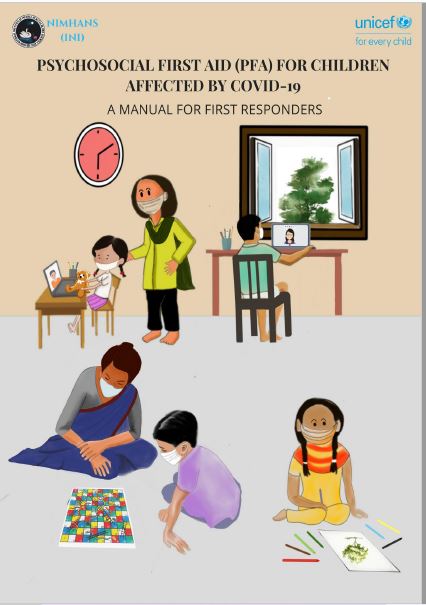
Psychosocial First Aid For Children Affected by COVID-19
Psychosocial First Aid For Children Affected by COVID-19

Brief Description: The spread of the COVID-19 virus has added a new dimension of vulnerability to the lives of children. Millions of vulnerable children are losing out on their development and learning opportunities, and their right to survive and thrive. The mental health and psychosocial impact of restricted movement, school closures and subsequent isolation are likely to intensify already high levels of stress which children from vulnerable sections face. Risk factors for violence, abuse and neglect are reportedly on the rise for children living under restricted movement and socio-economic decline. One indicator is the 50% rise in calls to CHILDLINE 1098 since the outbreak of the pandemic. Girls and women are at increased risk of sexual and gender-based violence. Children of migrant workers returning to their villages in India brings with it reduced access to services and protection. Isolation measures to contain COVID-19 has led to economic crisis as many families are losing jobs and livelihoods. This is likely to affect children the worst and their mental health as well.
The COVID-19 pandemic brings with a lot of stress, anxiety, fear, grief, and worry for everyone, causing serious mental health problems. For those children who are directly (or indirectly) affected by COVID-19, the stress and trauma could be many times more and may have severe consequences if not addressed in a timely manner. They need specialized help through trained professionals. Although everyone is affected by the pandemic at a psychosocial level, some children might require additional care and attention which require some specialist skills to address. Psychosocial First Aid (PFA) is a method of helping children having a moderate level of distress to feel calm and supported to cope better with their challenges.
Feedback and Comment